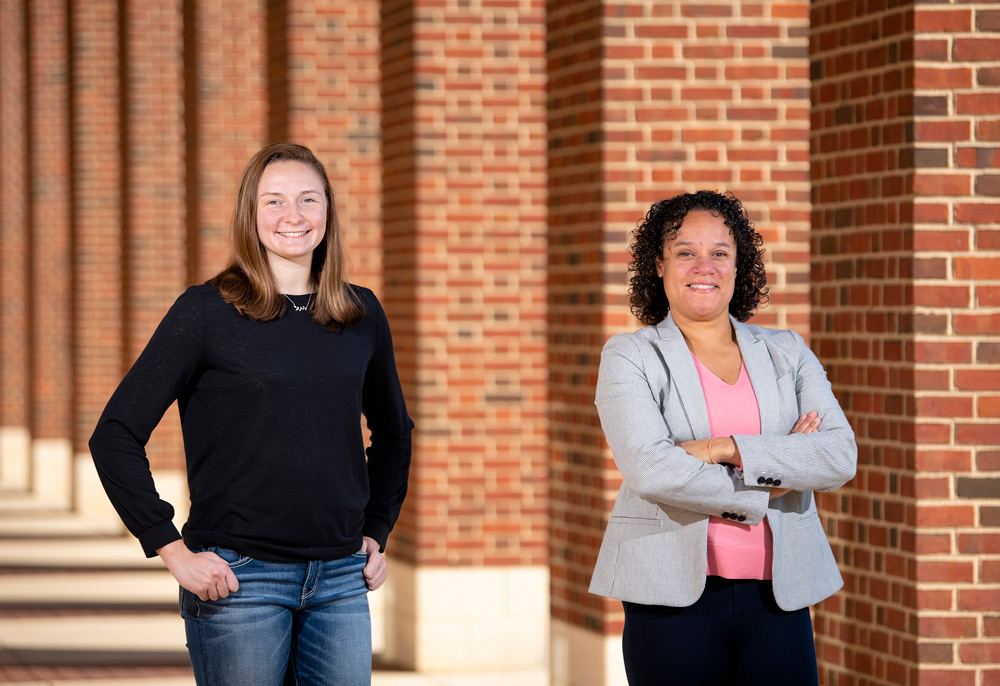

In the wake of George Floyd’s murder in May, a burgeoning anti-racism effort has gained momentum at Bucknell. At the forefront of the movement is Associate Provost of Equity & Inclusive Excellence Thelathia “Nikki” Young and the 10 diversity, equity and inclusion (DEI) groups that she has initiated across campus.
The Athletics Department’s DEI Council is a 10-member mix of coaches, administrators and students led by Maisha Kelly, senior associate athletics director/senior woman administrator. Kelly pulls double duty on the newly formed Patriot League Anti-racism Commission, which also includes Professors Coralynn Davis and Emily Martin, Head Men’s Basketball Coach Nathan Davis, Young and Abby Kapp ’21.
Kapp, a basketball player and economics major, also serves on Athletics’ DEI Council. Besides her work with those two groups, she was an intern this fall for the Bison Votes initiative, sponsored by the Office of Civic Engagement (OCE), “which has been very much involved in getting the entire campus registered to vote, not just student-athletes,” she says.
Her efforts for OCE dovetailed nicely with Athletics’ voter-registration push through RISE, which Kelly explains is a nonprofit that “uses the platform of athletics to be civically engaged. The concentration is around voting — not just registering students to vote but educating them on the power of voting and how it relates to civic engagement.”
Besides its voter-registration advocacy, the DEI Council developed a robust online collection of DEI resources for users to read, listen to and watch.
The work Kelly, Kapp and others are doing through the DEI Council and the Patriot League’s Anti-racism Commission already “has had an impact,” Kelly says.
But she acknowledges that accelerating greater engagement in DEI issues will require marathon stamina, a challenge for a former college sprinter like herself.
“It’s hard for me to exercise patience, given my DNA,” she says. “But both in the Patriot League and on campus, we are finding partners and that our values are being embraced broadly and are not just living in the select few.”